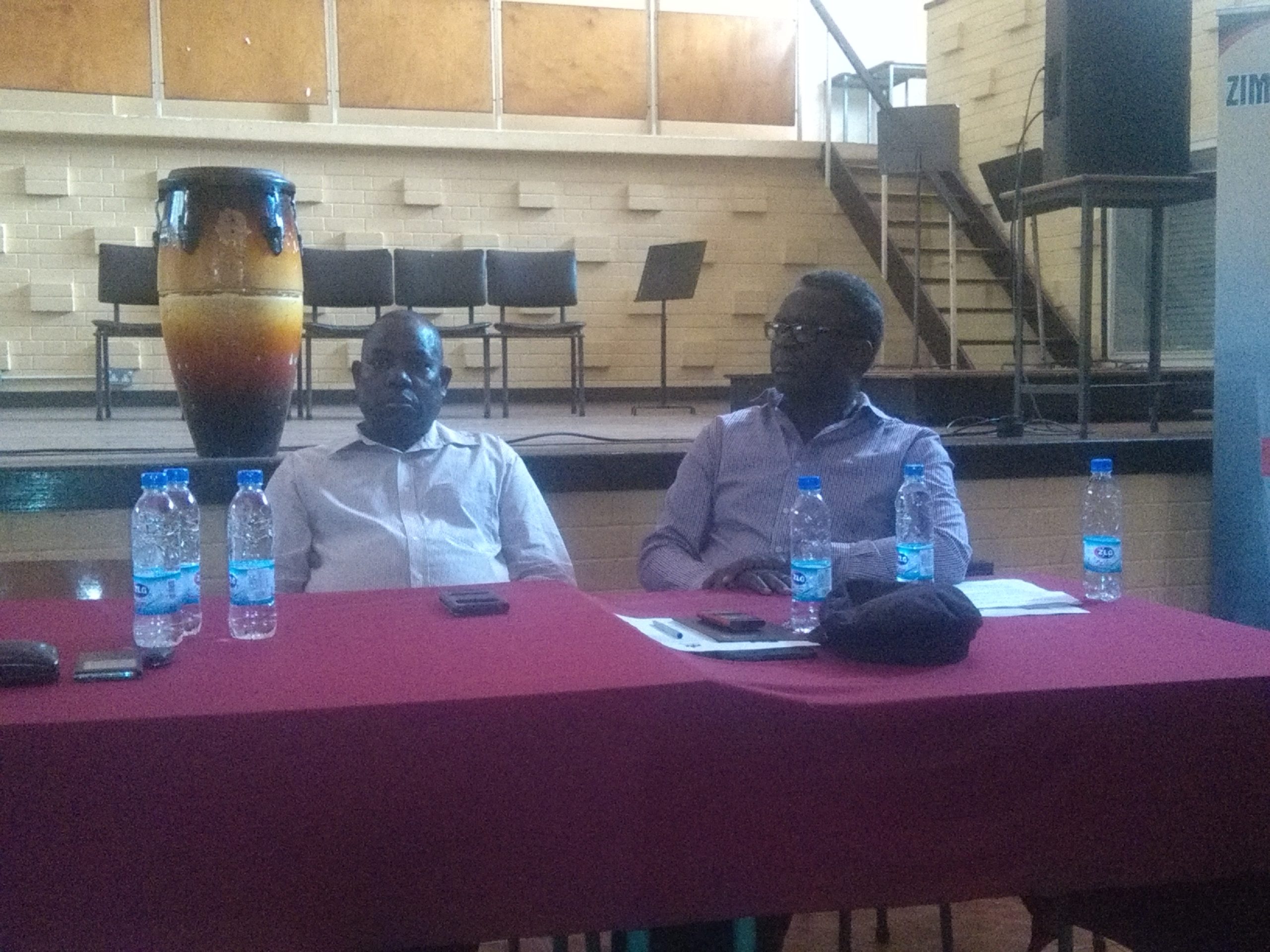By Byron Mutingwende
Music is a critical form of socialisation whose impact is immense, a top scholar and academic has said.
Speaking at a workshop to promote national consciousness and discuss the role of music with artists at the Zimbabwe College of Music in Harare on Tuesday 19 September 2017, Dr. Augustine Tirivangani, the Director of Registration and Accreditation of the Zimbabwe Council for Higher Education said music was a form of mass communication whose impact could be pervasive.
“Musicians should be properly guided in a particular philosophy or position in society. They have a responsibility to guide and save people. Music has the potential to build or destroy. Thus, I encourage musicians to construct messages that unite rather than divide people in societies,” Tirivangani said.
Tirivangani urged musicians to be sensitive in the way they package and parcel out the songs. He paid tribute to the Zimbabwe Music Rights Association for protecting the deprivation of musicians from reaping the rewards of their hard work.
Music, like poetry, acts as the carrier of a people’s history, culture, values, religion and spirituality.
“Besides entertaining, musicians have the responsibility of to carry the society forward through their messages. In doing this, they should chart a way of how society must develop and embrace peace.”
Musicians like Thomas Mapfumo, Simon Chimbetu and Dickson Chingaira (Cde Chinx) were famous for their songs that carried political consciousness and encouraged the black majority of Zimbabwe to take up arms against the racist and colonial regime of Ian Smith.
Speaking on national consciousness and the Zimbabwean heritage, Prichard Zhou, the Chief Executive Officer of Zimbabwe Heritage Trust said Britain and its western allies have been working hard to effect regime change in Zimbabwe for over a decade since the beginning of the land reform programme although their efforts have succeeded.
“This, however, does not mean that the imperialist project to unseat the Zimbabwean government has been abandoned. To the contrary, repeated failure by the West to achieve regime change in Zimbabwe has created a dangerous environment in the sense that imperialists are known to resort to brute force when all other criminal methods of achieving regime change have failed,” Zhou said.
